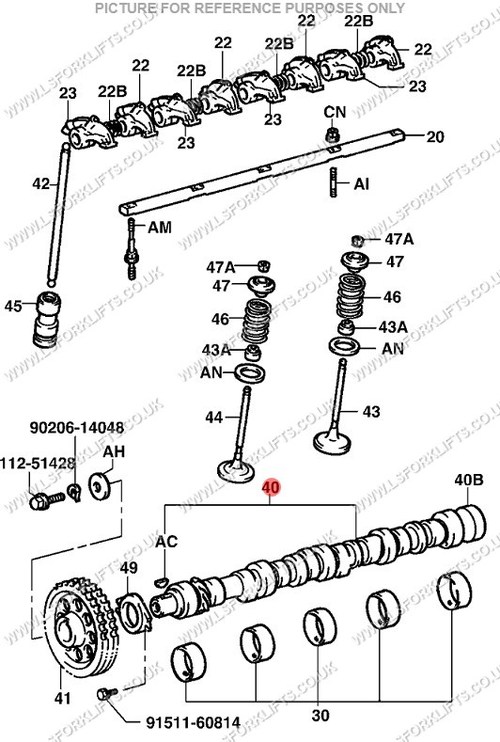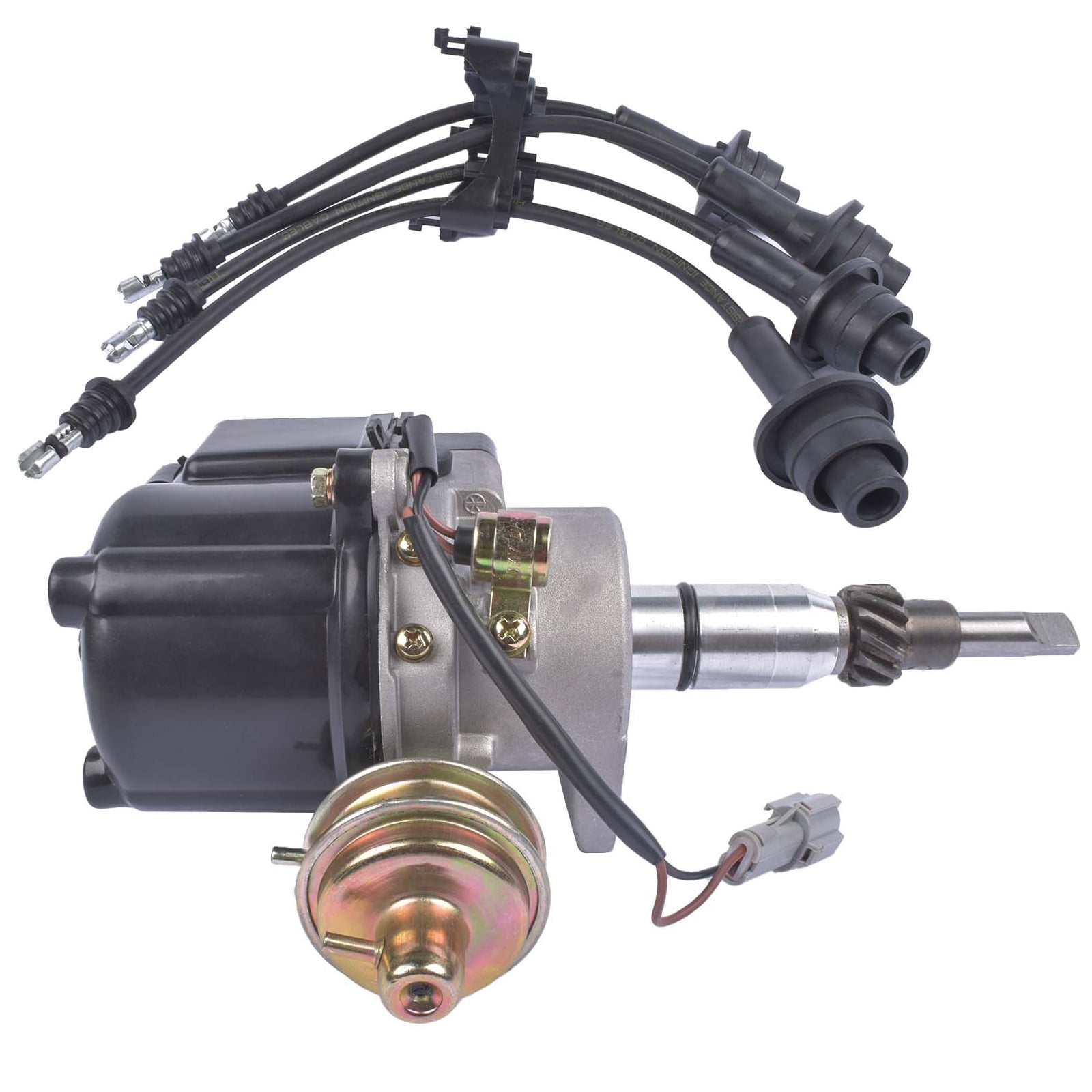How the 4Y Engine Compares to Other Engines in Terms of Fuel Efficiency
Wiki Article
Exploring the Various Kinds Of Engine: Which One Fits Your Requirements?
Internal combustion engines proceed to control due to their reliability, while electric engines are obtaining grip for their sustainability. Crossbreed engines use a flexible compromise, and diesel engines stand out for their power in requiring applications.
Interior Combustion Engines
Inner combustion engines (ICEs) are the backbone of modern-day transportation, powering a vast variety of lorries from autos to planes. These engines operate on the concept of converting gas right into mechanical energy via a series of regulated explosions within a burning chamber. The most usual kinds of ICEs include gasoline engines, diesel engines, and rotating engines, each created to meet certain performance and performance needs.Fuel engines usually utilize stimulate ignition, while diesel motor rely upon compression ignition, causing distinct differences in gas efficiency and power outcome (4y engine). Rotating engines, or Wankel engines, provide a small layout and smooth operation, however are much less typically utilized in mainstream applications
ICEs have undergone significant developments in innovation, including the introduction of turbocharging and fuel injection systems, which enhance total performance and efficiency. Despite their performance improvements, ICEs face increasing scrutiny due to their environmental influence, specifically pertaining to greenhouse gas exhausts.
Electric Engines
As problems concerning ecological sustainability and nonrenewable fuel source reliance grow, electric engines have actually become an engaging option to internal burning engines. These engines make use of electric motors powered by batteries or fuel cells, offering a cleaner and more reliable motive powers.One of the primary benefits of electrical engines is their minimized discharges. Unlike traditional engines that melt nonrenewable fuel sources, electric engines produce absolutely no tailpipe exhausts, dramatically reducing air pollution and adding to enhanced public health. In addition, the efficiency of electric motors often goes beyond that of interior burning engines, converting a better percentage of energy from the source of power into useful energy for activity.
Electric engines are likewise remarkable for their peaceful procedure, making them suitable for urban settings. 4y engine. The simplicity of their style results in less moving components, which can lead to lowered maintenance expenses and increased reliability over time
However, obstacles remain, consisting of battery production impacts, billing infrastructure, and variety constraints. Despite these difficulties, the expanding investment in electrical vehicle innovation and renewable resource resources factors towards an appealing future for electrical engines, positioned to play an essential function in the change toward sustainable transportation.
Hybrid Engines
Blending the benefits of both standard and electrical internal combustion engines, hybrid engines represent a functional solution in the quest for effective and lasting transport. These engines incorporate a gasoline or diesel engine with an electric motor, enabling enhanced gas performance and reduced discharges contrasted to standard lorries.Crossbreed engines run in several modes, utilizing the electrical motor for low-speed driving and the inner burning engine for greater rates or when even more power is required. This vibrant operation not just improves fuel economic situation yet likewise adds to a smoother driving experience. Regenerative stopping is one more critical feature, capturing power typically shed throughout stopping and redirecting it to recharge the battery.

As consumers increasingly focus on eco-friendliness, hybrid engines stand out as a sensible option, providing an effective equilibrium of performance, performance, and environmental responsibility. This versatility makes them appropriate for metropolitan commuting and long-distance traveling alike.
Diesel Engines
Performance and internet power are trademarks of diesel engines, which have long been preferred for their toughness and gas economic climate. These engines operate the concept of compression ignition, where air is compressed to a high temperature level prior to fuel is infused, igniting it without the demand for stimulate plugs. This procedure enables diesel motor to attain higher thermal performance compared to gas engines, translating right into better fuel gas mileage and reduced carbon dioxide exhausts.Diesel motor are especially appropriate for sturdy applications such as vehicles, buses, and industrial equipment, where torque and resilience are extremely important. Their design usually consists of more powerful parts to withstand the higher pressures produced throughout procedure, causing longer life span and reduced maintenance costs.

Alternative Gas Engines
While diesel motor have long dominated the landscape of sturdy source of power, alternate fuel engines are gaining index grip as feasible choices for a more lasting future. These engines use a range of fuels, such as pressed all-natural gas (CNG), hydrogen, lp, and ethanol, intending to minimize greenhouse gas emissions and reliance on fossil fuels.One substantial benefit of alternative gas engines is their prospective to lower carbon impacts. As an example, CNG engines emit less pollutants contrasted to conventional diesel engines, making them suitable for urban transit systems and fleets looking for to improve air quality. Ethanol, originated from biomass, not just minimizes emissions informative post however additionally sustains agricultural economic situations.
Hydrogen fuel cells stand for an innovative growth in this realm, using zero-emission power through a chain reaction in between hydrogen and oxygen. Difficulties such as framework development and production prices remain obstacles to extensive fostering.
Verdict
To conclude, choosing the ideal engine kind necessitates careful consideration of certain demands and preferences. Interior combustion engines use reliability, while electric engines prioritize sustainability and minimized upkeep. Crossbreed engines incorporate the benefits of both, enhancing effectiveness, whereas diesel motor give superior power and torque for heavy-duty applications. Alternative fuel engines present environment-friendly choices, albeit with prospective facilities obstacles. Inevitably, a thorough analysis of driving behaviors and ecological worths will certainly help with a notified decision concerning engine choice.Hybrid engines offer a versatile concession, and diesel engines stand out for their power in requiring applications. The most common types of ICEs consist of gas engines, diesel engines, and rotary engines, each designed to satisfy particular performance and performance requirements.
Unlike conventional engines that burn fossil gas, electric engines produce absolutely no tailpipe exhausts, considerably lowering air contamination and contributing to improved public wellness.Hybrid engines operate in a number of settings, making use of the electrical motor for low-speed driving and the interior burning engine for greater speeds or when even more power is needed. Crossbreed engines integrate the advantages of both, boosting effectiveness, whereas diesel engines provide premium power and torque for durable applications.
Report this wiki page